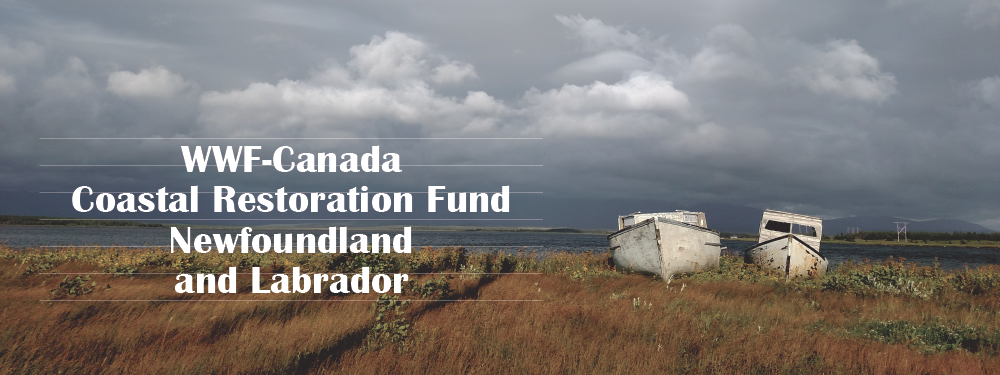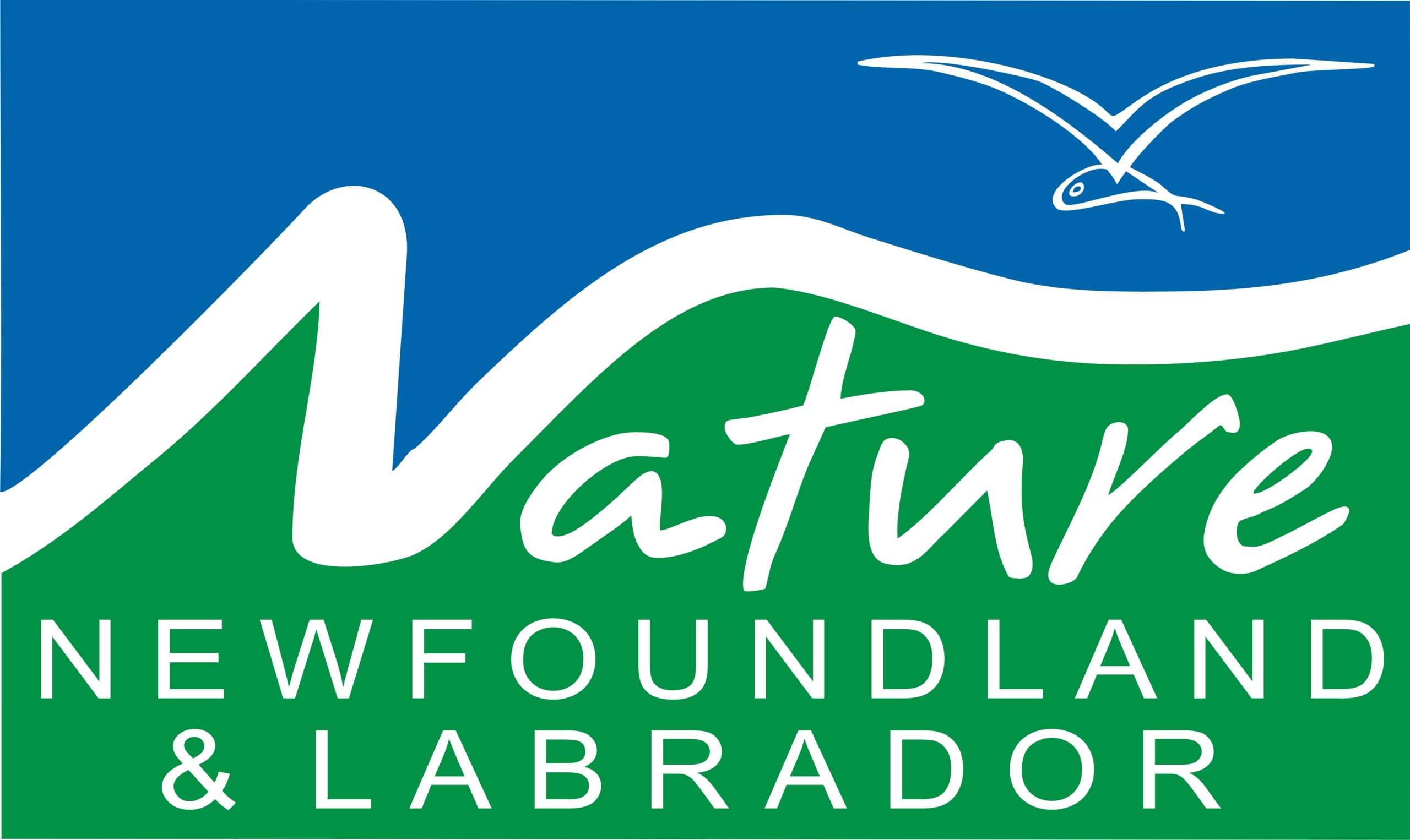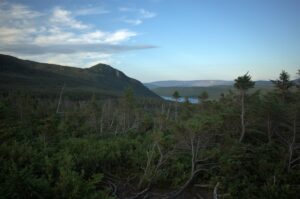By Sara Jenkins
Posted October 15, 2018
For our speaker series last month, GIS and conservation planning consultant Randal Greene spoke about his current work with the World Wildlife Fund Canada to identify and prioritize sites for coastal restoration efforts in Newfoundland and Labrador. Randal and WWF-Canada Project Coordinator, Victoria Neville, would like to give you the opportunity to voice your concerns about your coastline. Read on to find out how you can suggest sites in need of restoration efforts as part of this multi-agency, multi-year initiative.
Project Overview

This initiative is sponsored by Fisheries and Oceans Canada, as part of their Canada-wide Coastal Restoration Fund, aimed at helping restore coastal aquatic habitats and addressing major threats to marine biodiversity and sensitive species. Here in Newfoundland and Labrador, WWF-led restoration efforts will focus on projects that contribute to sustainable stewardship of aquatic resources through habitat restoration and improved ecosystem modelling. The types of restoration activities may include—but are not limited to—replenishment of proper habitat substrates, such as aggregate filling; installation of erosion control measures; vegetation restoration; and barrier removal to enhance fish migratory corridors.
Early Successes
The project will build on the momentum of a successful restoration of capelin habitat at Ship Cove, NL by the WWF. Periodic gravel removal transformed the beach from a loose, gravelly substrate into a mix of sand with large cobbles and boulders. This shift left very little of the shoreline for capelin to spawn on the beach. Initial efforts focused on replenishing the beach gravel, providing a more ideal environment for spawning and egg incubation. Video of capelin rolling in July, 2018 speaks to the success of this effort and others like it.
What’s next?
Randal and Victoria are currently building an integrated model of the Newfoundland and Labrador coastline to help prioritize specific coastal locations for future restoration and enhancement efforts between 2020–2022. Site prioritization will be supported by a weighted scoring approach that estimates the relative suitability of the each potential site, and documents the disturbance and threat levels, along with ecological and community factors. Randal describes this process as a series of steps, likely including:
- Exploring potential criteria, including understanding the data limitations and biases.
- Screening/filtering to narrow down the province to dozens or hundred of sites or general areas.
- Exploring options and undertaking work for filling information gaps, including expert engagement and suggestions.
- Additional screening/filtering to narrow down the number of sites for detailed assessment and final selection.
- Deciding on key criteria to support the final selection process.
- Field work, expert consultation and mapping activities to effectively rate the criteria for each site.
- Scoring runs in support of final site selection and to understand criteria sensitivities.
This multi-step process involves not only merging available scientific and provincial datasets, but also incorporating traditional and historical knowledge about the health of fisheries and the state of coastal sites. This knowledge includes information such as species diversity along our coasts, evidence of existing degradation such as pollution or beach modification, identification of human and environmental threats to our beaches, as well as information about areas to avoid, such as archaeological sites or sensitive species habitat.
Join the conversation
Nominate a site in need of coastal restoration under this initiative by filling out Randal and Victoria’s public input form at http://wwf-crf-site-suggestion.com. Describe a site you think is in need of attention, pinpoint the exact location, and add a photo to highlight your concerns.
Or, contact Randal Greene ([email protected] ) or Victoria Neville ([email protected]) directly.
To distribute this information to your community or colleagues, download a printable version of this project overview with links and contact information.

